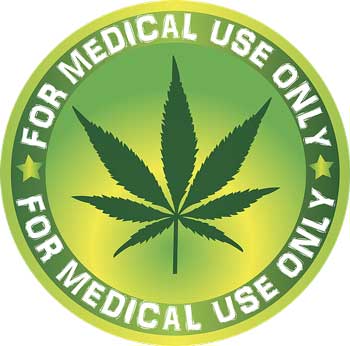

Health Rising’s Marijuana as Medicine for ME/CFS and Fibromyalgia Series
- Pt I: Marijuana as Medicine for ME/CFS and/or Fibromyalgia: The Science Behind Cannabis – Amber Ella
- Pt. II: Getting Started with Cannabis – Amber Ella
- Pt. III: Cannabis – More Than Just THC and CBD – the other potentially healthful elements in Cannabis -Cort Johnson
- Pt. IV: The Doctor Speaks: Cannabis Treatment Protocol – How to quickly stop a high / What to do when CBD stops working / Finding Safe CBD Oil and more – Cort Johnson
- Pt V: CBD OIl – A Primer for ME/CFS and Fibromyalgia – Finding safe and effective CBD Oil and more – Cort Johnson
- Pt. V: Strain Specific – Picking Your Plants – coming up
The Doctor Speaks
Dr. Michael Moskowitz is a pain doctor in Sausalito who sees the worst of the worst. He’s generally the end of the line for people in chronic pain. The author of “Medical Cannabis: A Guide for Patients, Practitioners, and Caregivers”, he’s also on a mission to convince patients and the medical establishment that Cannabis is worth a try.

Used correctly, Moskowitz and others report that Cannabis products may be able to relieve pain, improve sleep, reduce anxiety and improve cognition.
While recognizing that randomized, placebo-controlled studies are rare, Moskowitz asserts that plenty of information, in the form of animal studies, pharmacological studies and case reports, indicates that when used properly, Cannabis is a safe and sometimes quite effective treatment for a wide variety of issues.
In a recent Leafly interview, Moskowitz explained the frustration he’s felt over 30 years of inadequate pain treatment.
“I was treating patients for probably thirty years when I came upon this [Cannabis] in chronic pain treatment, and what I was impressed with was how muddy all of the medicines we were using were. Even though we got people better, we never got anybody well or rarely got anybody well. The rubric in chronic pain treatment is to tell the patient, ‘we can help you reduce your pain but we can’t make it go away’. I thought, that’s just crap, why are we telling people that? We’re only telling them that because we don’t have the tools that we know how to use to make it go away, but it doesn’t mean they don’t exist.” Moskowitz
Moskowitz’s personal experience with Cannabis began after a devastating injury resulted in four surgeries on his ankle and lower leg. With opioids having little effect on his pain, he tried something new:
“I started using more cannabis with higher THC because I was doing nothing but laying around at that point… I came up with a treatment where I used a combination of THC and CBD in an alcohol tincture in a rollerball, rolled around the area where the surgery was because I couldn’t touch it, it was still an open wound, and it took the pain away 100% within three minutes. It never failed to do that, not once.”
The effect would last from six to eight hours. At that point, he began slowly incorporating Cannabis treatments into his practice and created a database that followed 161 people over 19 months. He had worked with many of the patients for years. The results were remarkable in a practice such as his: eighty-seven percent reported pain reduction, 81% reported improved sleep, 73% improved stress, and 76% improved quality of life.
Norman Doidge reported on Moskowitz’s use of neuroplasticity to reduce his patients’ pain, but in a recent interview, Moskowitz stated that Cannabis was producing a more robust response.
The Case for Synergy
There’s this tremendous synergy that makes up that ensemble or entourage effect. Moskowitz
Knowing only the THC and CBD content of a strain is limiting; it takes away the blending of the entourage effect and doesn’t help in recommending something based on its medical values. Moskowitz
THC and CBD do different, sometimes even opposing, things in the body, but when it comes to healing, they work better together than separately. Studies suggest that when taken alone, CBD is usually less effective than when taken with THC (and other phytocannabinoids).
While CBD is the most anti-inflammatory substance yet found in Cannabis, other phytocannabinoids in the plant have their own and differing anti-inflammatory effects. Combining them into one more potent anti-inflammatory package seems to make sense in ME/CFS/FM.
If fact, one study suggested that taking CBD alone greatly reduces its window of efficacy: i.e. you have to get just the right amount to relieve pain. Animal studies suggest that with pure CBD oil, less is more, and increasing the dose beyond a certain point does not help relieve pain. This plateau effect did not, however, occur with full-spectrum Cannabis extracts.
The same appears to be true for THC. Backes reported that a CBD/THC spray called Sativex significantly reduced cancer pain while pure THC did not.
Note that as much attention as THC and CBD have received, they’re just the beginning of the medicinal story regarding Cannabis. The other phytocannabinoids (CBN, CBG, etc.) and chemicals in the plant (terpenes, linalool, etc.) also have medicinal effects and, if possible, should be included in one’s treatment regimen. (Because less of these factors are found in hemp-derived CBD oil, Cannabis-derived CBD oils may work better.)
A Focus on Variety
Openness to trying new approaches can be quite helpful. The advantage of a constantly shifting internal and external mix of endocannabinoids and phytocannabinoids is that the body does not become tolerant to any one approach, making it harder for disease to express itself in the face of this constantly adjusting treatment. Moskowitz
Moskowitz believes that, for medical purposes, the methods of delivery which provide the broadest sweep of phytocannabinoids possible are tinctures, vaporized plants and capsules. His recommendation that one start out with tinctures and then incorporate other delivery methods into one’s regimen fits well with his general approach to incorporate as much variety into one’s regimen as possible. This ultimately includes using different strains and different modalities (tinctures, oils, vapor, capsules, topicals, raw plant).
Stopping the Treatment “Burnout” Blues
Focusing on only one component or strain of the plant is limiting and gives too much chance for the treated illness or injury to adapt and overcome effectiveness. The body’s ability to do this is an unfortunate fact of most treatments. Mostkowitz
Moskowitz believes that Cannabis may be uniquely positioned to deal with a common problem in ME/CFS, fibromyalgia and other diseases; treatments which are effective at first but which peter out over time. Cannabis’s ability to keep producing effective results when other medications have failed may lie in three factors: the many different strains of the plant, the many routes of application available, and the many systems it affects suggests to Moskowitz that when used skillfully, Cannabis may be able to, in effect, nudge the body out of illness states that it’s become mired in.
In chronic conditions, the body resets to survive within the relentlessness of the disease. With a treatment that constantly shifts its own milieu and the body’s internal milieu, combined with such broad-based anti-inflammatory and neuroprotective traits, we have a real chance of making fundamental changes. For the patient, then, establishing effective care, then trying new and varied products can be extremely helpful. Moskowitz
Moskowitz also draws a distinction between stronger but shorter-lived responses and slower, more profound responses.
The true gift of this treatment is in its ability to transform the body back to normal states in a slow, methodical way. This slow nudging back to normal is the best way to move from a state of disease to that of wellness because it allows the body to slowly adapt…to establish a new and lasting balance point of health and pleasure…Moskowitz
When CBD Oil Stops Working
This article suggests that while it is possible to build up a tolerance to THC, it’s not as likely to happen with CBD. Still, reports indicate that this can happen. Oddly enough, one of the solutions to CBD tolerance is to take less of it.
Other options include giving yourself a short vacation (2-3 days to a week) from the plant. Trying different strains and/or different delivery methods is recommended as well.
How to Get Rid of an Unwanted High
- Take a high CBD / low THC tincture and then hang on for the 60-90 minutes it will take for it to take effect. (CBD inhibits THC activity.)
- Or for quicker relief, vaporizing a high CBD / low THC strain should knock that high (or anxiety, etc.) down in 3-5 minutes.
According to Backes, high THC Cannabis with CBD, limonene and pinene may be less prone to producing anxiety. A plant with 10% CBD and 5% THC will generally produce no intoxicating effects. Mixing a plant with 10% THC and little CBD with one that has 15% CBD and little THC will likely also produce no intoxicating effects.
Check out our CBD oil rating site here and please rate your experiences with Cannabis in our new review program
Health Rising’s Fibromyalgia and Chronic Fatigue Syndrome Cannabis Review Program
when you get it right
you pass it on… Gary Snyder
The first Cannabis review program for people with ME/CFS and/or FM. (Note that all answers are anonymous. There is absolutely no way to tell who provided what answer.)
Health Rising’s Marijuana as Medicine for ME/CFS and Fibromyalgia Series
- Pt I: Marijuana as Medicine for ME/CFS and/or Fibromyalgia: The Science Behind Cannabis – Amber Ella
- Pt. II: Getting Started with Cannabis – Amber Ella
- Pt. III: Cannabis – More Than Just THC and CBD – the other health enhancing factors in Cannabis – Cort Johnson
- Pt. IV: The Doctor Speaks: – Moskowitz on Cannabis / A focus on variety / Stopping the Treatment Burnout Blues / How to quickly stop a high / What to do when CBD stops working – Cort Johnson
- Pt V: CBD OIl – A Primer for ME/CFS and Fibromyalgia – Finding safe and effective CBD Oil and more – Cort Johnson
- Pt. V: Strain Specific – Picking Your Plants – coming up









Important to add is that CBD itself may be sufficient for some pain states and it need not be at all so that one of the other cannabionoids is needed to get a good effect. It is too complicated to say that CBD combined with THC would always be better.
According to my friend, who has been researching the field for about 25 years and who is a professor of pharmacology this, as above. In order to reset the sensitivity to cannabinoids, you should abstain for at least three to four days, but even better if you stay up to a week, even this according to the professor. It always depends on what state of pain you have and how it has arisen but also how and why it is kept alive. Many times you might try yourself for yourself which is the best option. Otherwise, it is usual to combine two drugs / substances with a synergistic effect, but sometimes it may even be better to just take one substance.
There is so much to do about cannabis, so if you spend as much money as you do on eg diabetes research it might take 50 years before we even understood everything. What was new to me in the article is about raw cocoa and I will try that right away and see what it will have. I have previously tried turmeric for a few years, but without any major pain-relieving effect, but then my pain is probably not of an inflammatory nature.
However, those with inflammatory diseases can probably have a good effect by combining this, especially in the acid formulations THCa and CBDa. Thanks for a great article! When will we see an article about the newly discovered pain organ in Cort’s skin? =)
Thanks Dan. There is indeed much to learn. For those confused about the cocoa reference I had a combining Cannabis section which at the last minute I decided to move to future blog.
That pain organ – I remember it but my memory is sketchy I’m afraid.
Hi Cort, would it be possible to clarify CBD interactions with prescription medicines as well in one of your blogs plus any reactions that may occur with herbal remedies. I find it very confusing reading different articles on the subject and uk doctors don’t seem to have the knowledge and one I spoke to didn’t even know what CBD was.
I found this article very interesting and it has clarified a few points for me. I have been trying a few different oils with mixed results. I definitely think it helps me sleep at night but have had mixed results regarding pain. I will keep on experimenting with dosing and also found it interesting that giving it a break now and then is good as that is what Pinetree said so will try that as well.
Will do BT…thanks for the idea
This just got more confusing to me. Not only do I have ME/CFS, Fibromyalgia, Epilepsy, hypothyroidism that’s never be regulated, and many other health problems I have severe neck, back and right leg pain that also keeps me bedridden. I so am ready to try something different as my pain never seizes. But this is not a easy protocol to understand or do. Please help all of us with extreme brain fog understand how to go about trying this. It would be greatly appreciated.
It is rather complicated. I was surprised at how complicated it got. I just created a GIST box on the right hand side of the page that may help.
The gist is that Dr. Moskowitz, Leiner and the resources I checked out agreed that in general it’s best to use full spectrum CBD oil, look for evidence that the components in the CBD oil have been tested by an independent lab, and if you use hemp derived CBD oils get them from a reputable source (organically grown hemp is best). All CBD oil should have a label stating that they’ve been tested by an independent lab. Also stay away from certain extraction techniques. My guess is these practices will be standard for reputable companies.
Re. RSO (Rick Simpson Oil) (sounds like what Cort is using) This seems to be the method of choice for many. Because they can make it them selves and control everything especially the use of solvents, in this case EverClear a very purified vodka or some just plain vodka. Others do use rubbing alcohol, say it evaporates. I would never, if I can”t drink it, why? There are many youtube videos one of a Dr. doing so in her kitchen with two pans (double boiler method) turning one ounce MJ into super concentrated Medicine in one hour. The local price here is $200/Oz MJ and maybe $20 for Vodka.
My problem is chemical reaction to too many things, so only need a small trial sample. Looking
I started using MM for my perennial sleep problems. I could not vape at all due to the coughing and throat irritation. I started using the tincture oil 10% solution 1-9 ratio CBD to THC. It took 1 1/2 to 2 hours to work and I’d get two to three hours sleep. I went up to a 20% solution – half a dropper and there didn’t seem to be a huge difference. I would only take it about once every week or two. When I used it five days in a row, two days later I got a severe CFS relapse. It took me 5 months to recover, much longer than usual. So I’ve been afraid to use any more. I did buy some 1:1 ratio 20% and used it in the morning with minimal effects.
Are Parts 5 and 6 of the series still forthcoming or am I just not looking in the right place for them?
I’m looking st this now in 2024 and am bummed the last part seems to never have been published. This has been great for confirming what i had already thought about treatment for cfs, the plant strains would be a good read.
Thanks for reminding me of this – I will put it on the list!